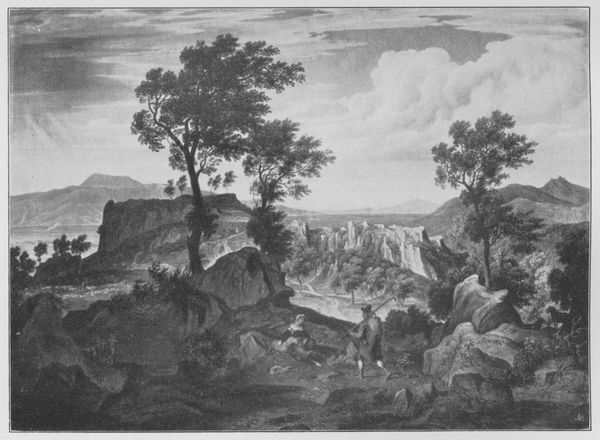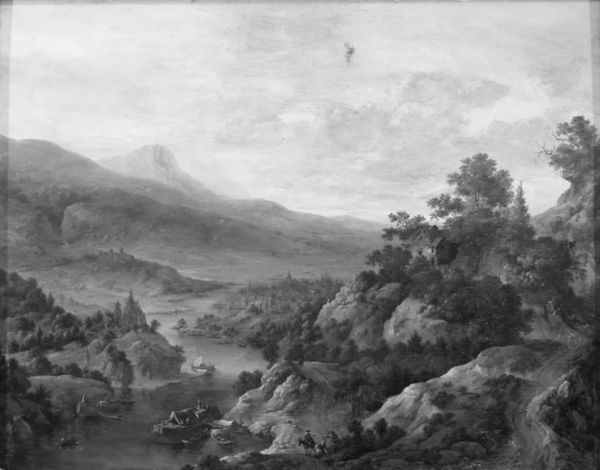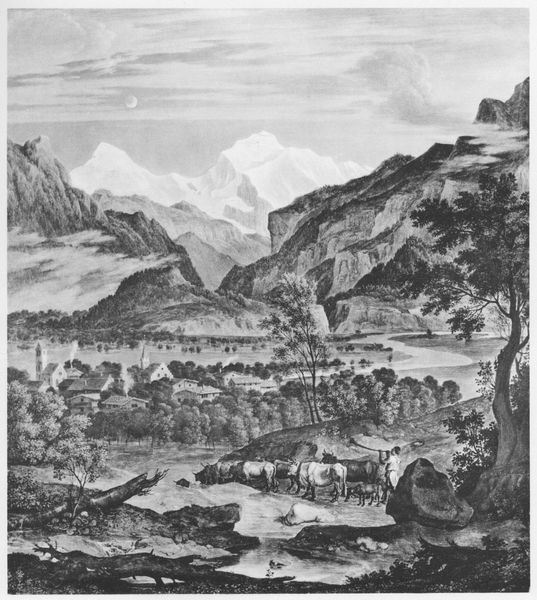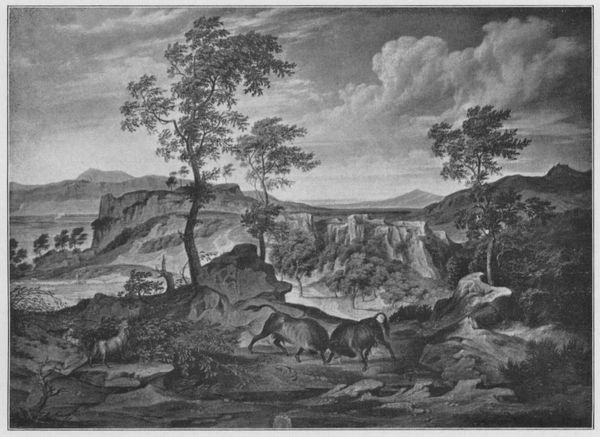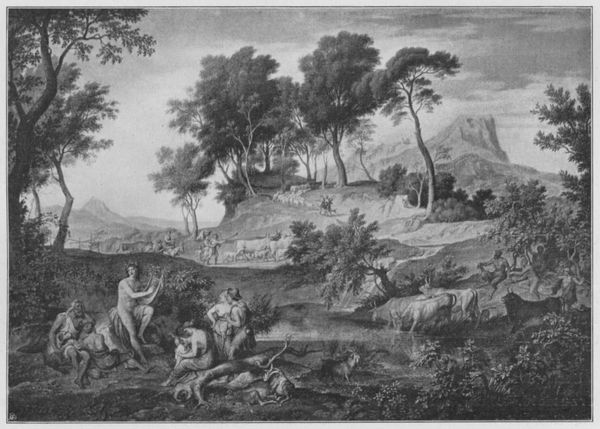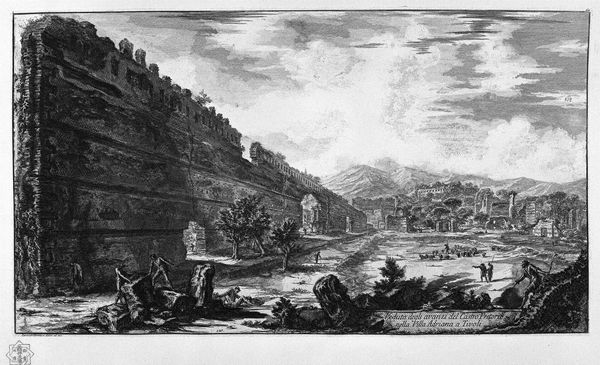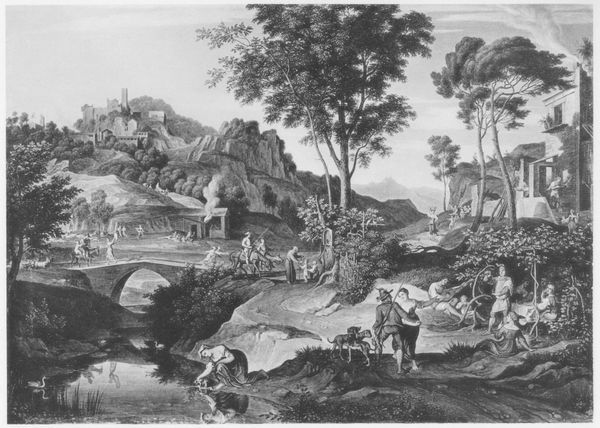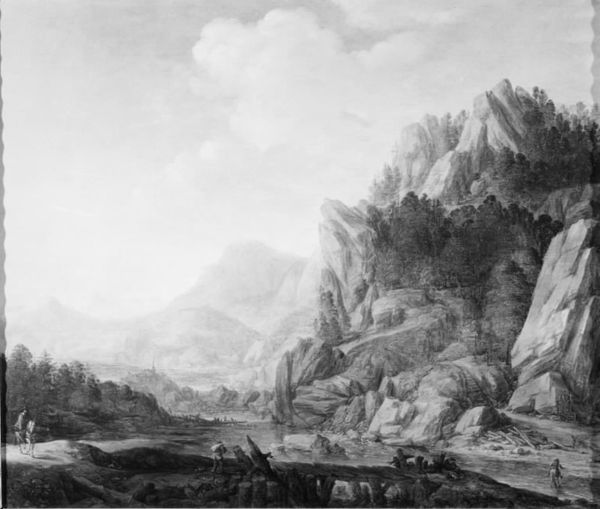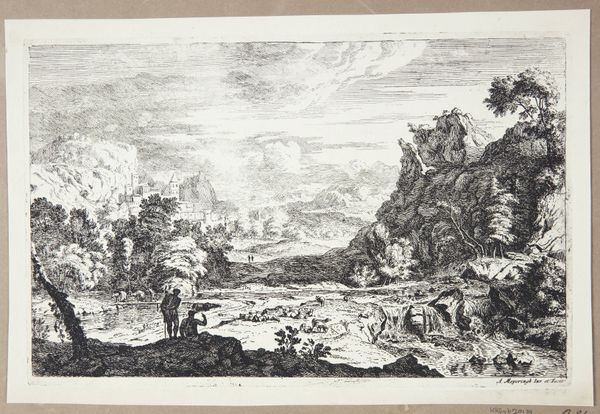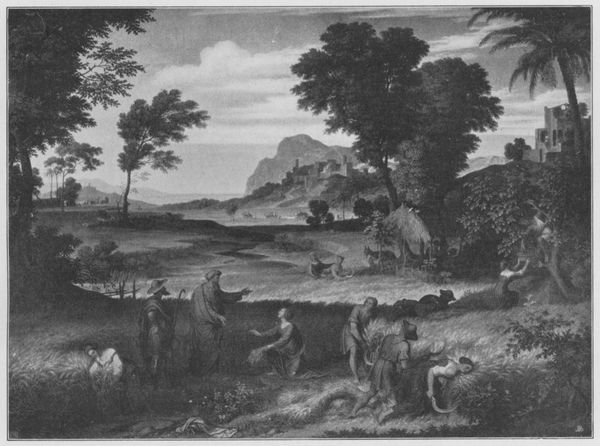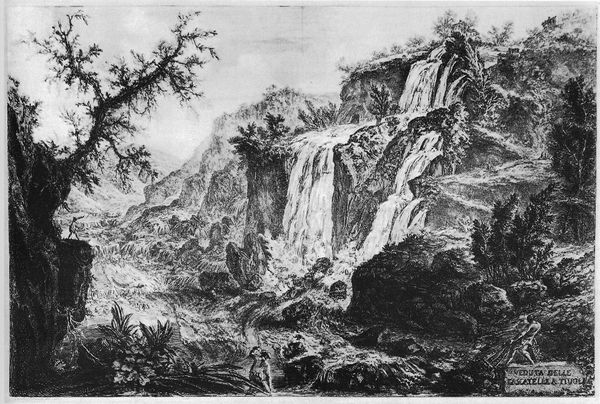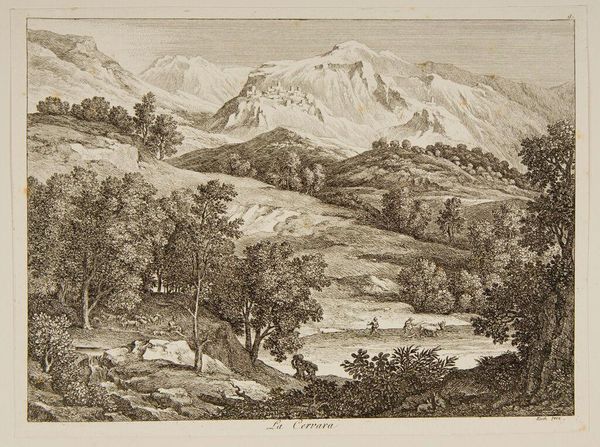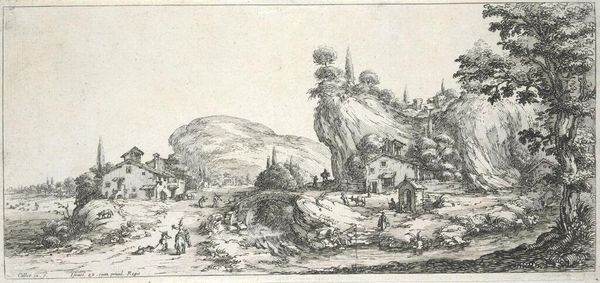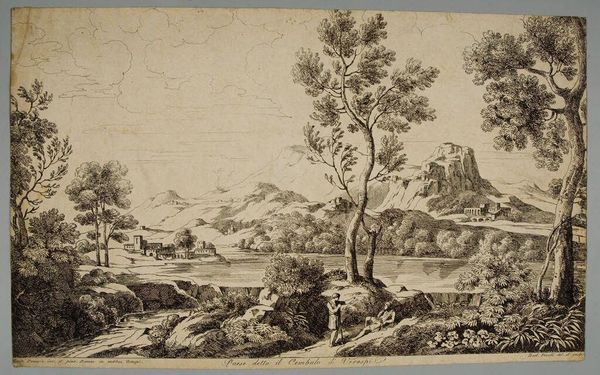
painting, charcoal
#
painting
#
landscape
#
charcoal drawing
#
romanticism
#
charcoal
#
history-painting
#
charcoal
Dimensions: 134 x 101 cm
Copyright: Public domain
Editor: Here we have Joseph Anton Koch’s "Berner Oberland," created around 1817 using charcoal. It feels very classic, evoking an imagined past—almost theatrical in its composition. What’s your perspective on this work? Curator: It’s tempting to see this landscape as a mere representation of nature, but let's dig deeper. Consider the Romantic period's obsession with the "sublime." Koch isn't just painting pretty mountains; he's framing a relationship, one where humanity is dwarfed and shaped by the immensity and power of the natural world. How does that reading change your perspective? Editor: I see what you mean! The people in the foreground do seem so small and their activities almost quaint against that backdrop. Does the historical context shed any light on why Koch chose to portray the scene in this way? Curator: Absolutely. Post-Enlightenment Europe saw a rise in nationalism. Landscapes became symbols of national identity and cultural heritage. Think of Koch placing the local people, with their everyday lives, in direct conversation with this imposing, eternal landscape. He’s essentially arguing that the identity of the Swiss people is intimately intertwined with their environment. Editor: That makes a lot of sense! I hadn't considered the political undercurrent. It definitely moves beyond just a pretty picture. Curator: And it pushes us to think about landscape painting not just as documentation but as an active participant in shaping cultural narratives, even national ones. How might that understanding inform our viewing of contemporary landscape art today? Editor: This has definitely changed how I see landscape paintings. I will look for how social context impacts nature and art. Curator: Exactly! Art can be a powerful voice, particularly when read within its relevant history.
Comments
No comments
Be the first to comment and join the conversation on the ultimate creative platform.
